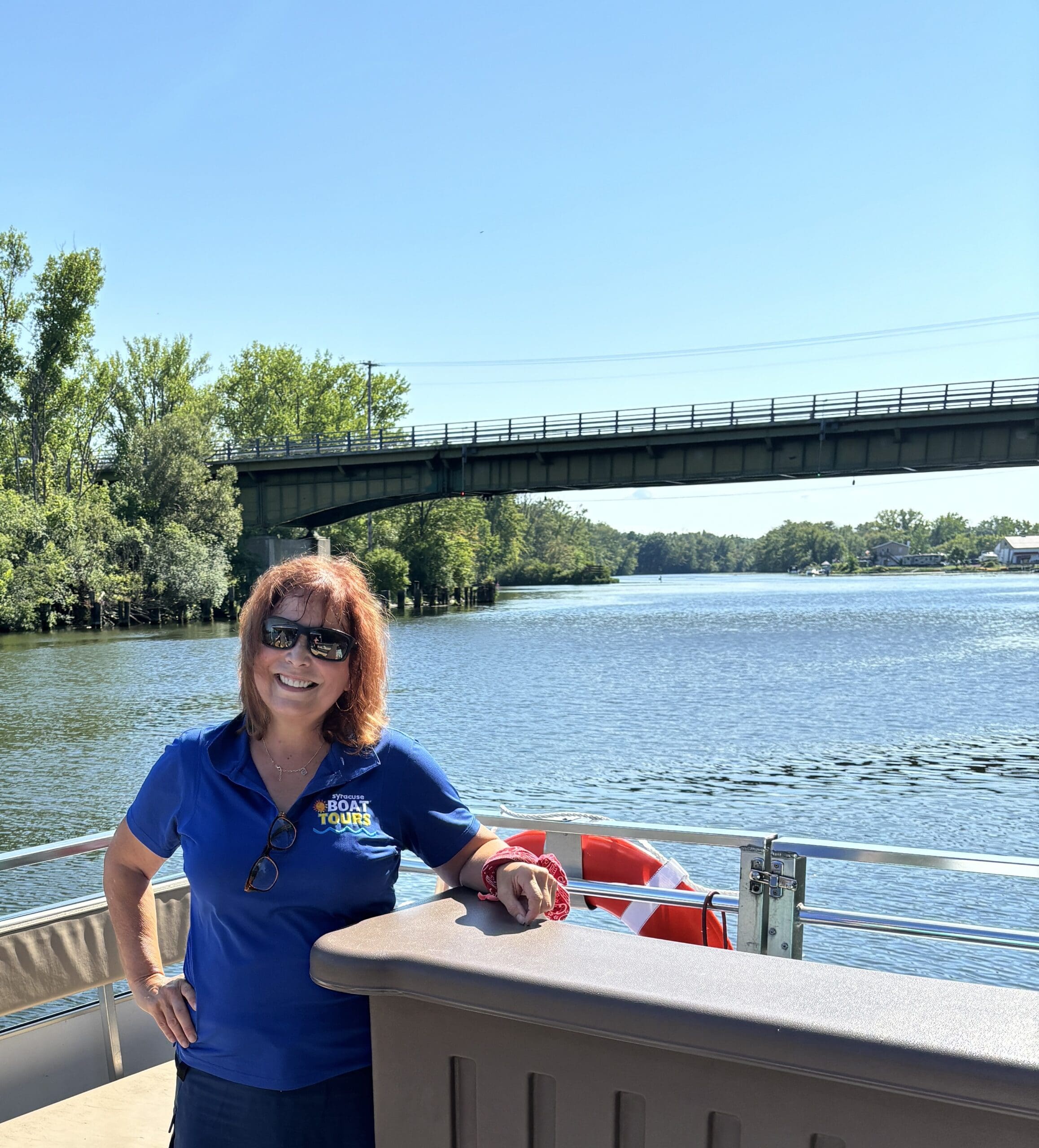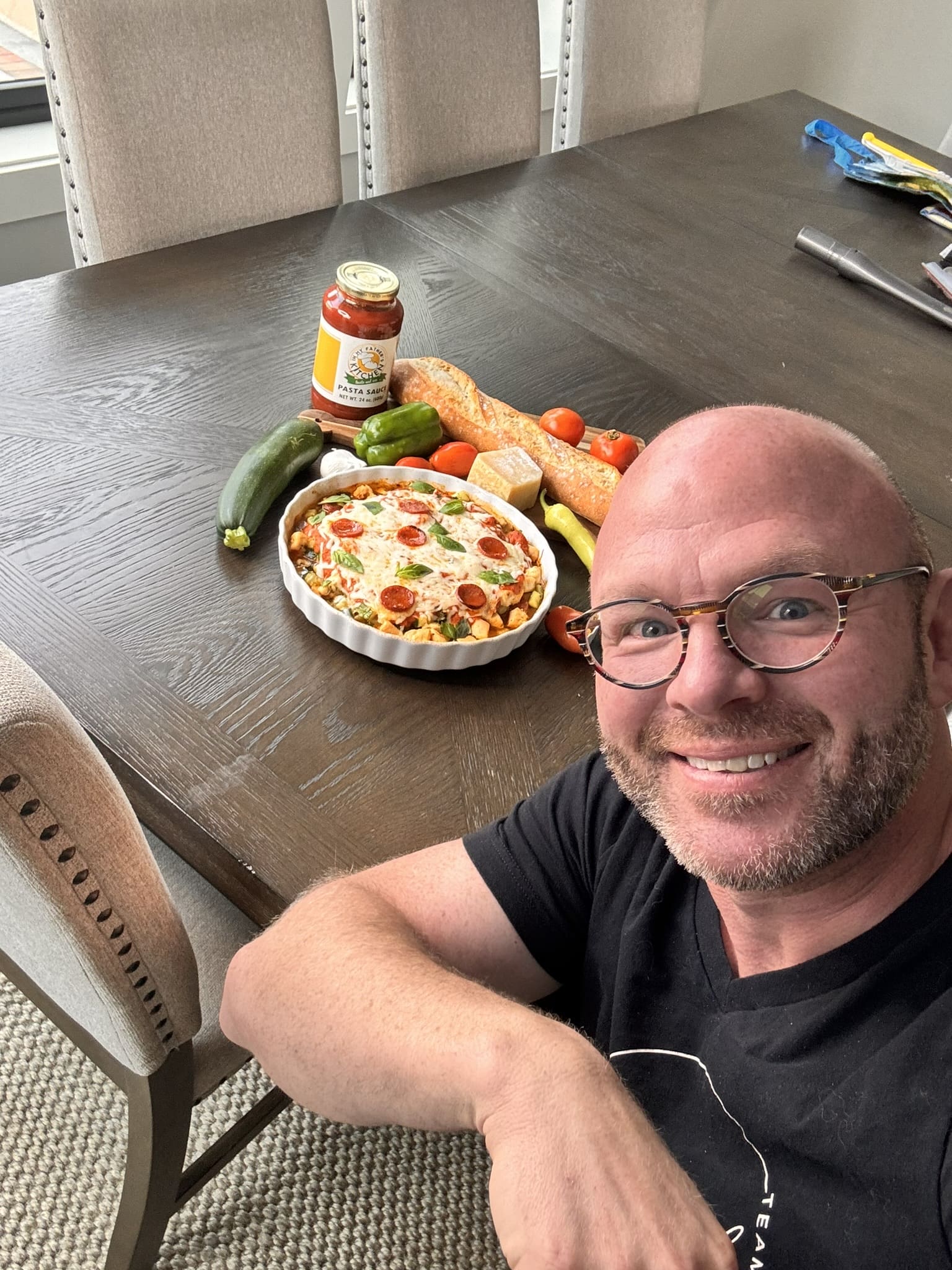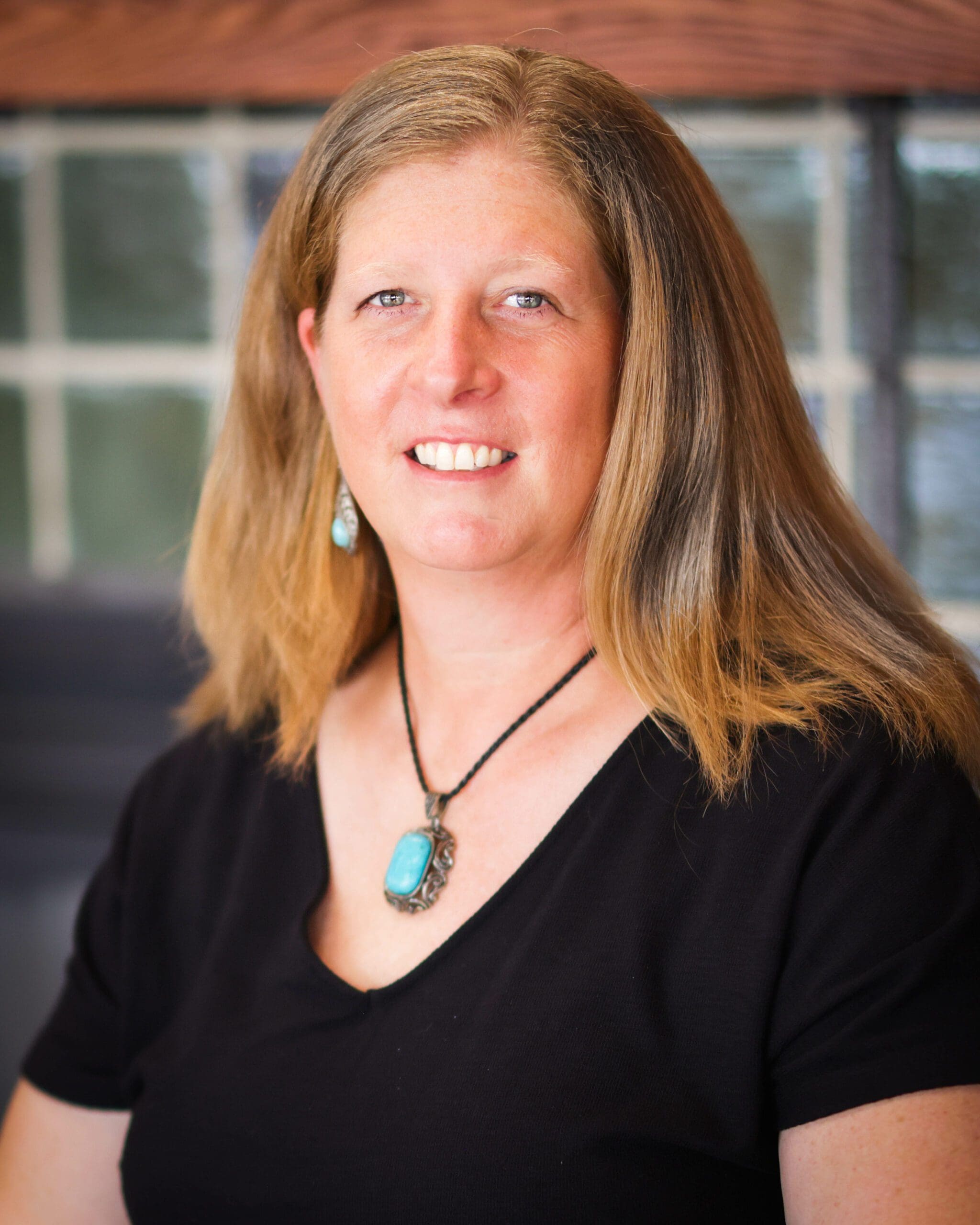Sara Haag, MSW, Divisional Director
Tell me about the Help Restore Hope Center. How was it started? How are you funded?
The Help Restore Hope Center is a domestic violence, rape crisis, and victim services program based in rural Central New York, proudly assisting survivors as they transform their lives in our home communities of Madison and Chenango counties. It is a program of the non-profit Liberty Resources, which is headquartered in Syracuse. Liberty Resources employs more than 1,400 professional staff providing shelter, treatment, assistance, counseling, and support to nearly 18,000 individuals and families in two states.
The Help Restore Hope Center is sort of an unsung hero in the field of survivor services, quietly helping individuals rebuild their lives for the past 30-plus years. It all began around the time that a societal movement of empowering survivor women was occurring, around the late 1970s or early ‘80s, when a group of concerned citizens saw a community need and decided to rise to that challenge. Liberty Resources is the perfect agency to support that venture with such a huge scope of services to many different populations.
What areas do you serve?
While we are experts on our home communities, we will strive to help anyone that reaches out to us. Any survivor of domestic violence, sexual assault, or other crimes is free to make contact with staff through our 24/7 toll-free hotline at 1-855-966-9723. Staff will ask the caller where they are located now and/or where they wish to receive services. They will also ask some questions to seek to understand the best way to help the caller. Generally by phone we are able to provide information and referral, counseling, safety planning, and help connect to other related services.
When did your locations open?
The program in Madison County is one of the oldest domestic violence programs in New York state, with more than 30 years of service to our community. Liberty Resources is currently celebrating 40 years of service to the Madison County community where this program started! The program in Chenango County is newer. There we have been helping survivors in the rural Norwich area for three years now.
Why did Liberty Resources think it was necessary to provide something like Help Restore Hope in your area?
Liberty Resources’ roots as a human services agency are in Madison County and we got our start due to the need that existed for battered women. Women and children needed assistance. It was clear that this was an issue that really needed to be addressed. A group of very dedicated citizens came together to form what is now our program.
We are so thankful for those citizens that helped this program get a solid foundation. Some of our founders and retired employees are still active as volunteers, and we are so grateful for them and what they have given to our clients over the years!
What kinds of services do you provide?
A variety of support for the survivor that ranges from short term assault care in the hospital through the Sexual Assault Nurse Examiner (SANE) program, to identifying safe housing, to domestic violence advocacy, to therapy and support groups, to longer term holistic therapy healing through our trauma-informed survivor workshops. We are caring for the whole need of the individual as they heal and re-take their power. Services provided are free and confidential, as well as voluntary/self-determining. All initial service access is through the hotline as point of contact. Our in-person response is limited to our home service area communities of Madison and Chenango counties, but we will strive to help and/or refer to programs that are closest to where a survivor is at the moment.
The survivor may self-determine and select services that align with their needs. They may choose to receive help as they need it, when they need it. Services are provided without discrimination. A survivor truly can be anyone — from any walk of life. There is no “typical” survivor. The programs assist not only women and children, but also men, non-binary individuals, and transgender individuals, too.
How do you advocate for survivors?
We believe every survivor is unique, and we strive to support them on their own path. One of the first things that our new advocate staff learn in their on the job training is that while there are roadmaps for how one can advocate for our clients, no two clients are exactly alike, and needs can change over time. Advocacy can look like helping a mom obtain an order of protection and helping her figure out what to expect, or meeting with a scared individual in a hospital or police station who was just victimized, talking with a caller to the hotline about their safety planning, meeting with a family who is looking for safe shelter, and so on. The opportunities to help as plentiful. One of the best parts of doing this work is when you get to see a client transform their life. We get the best thank you cards and phone calls to help remind us of why this work is so important. It is deeply satisfying to have been a helping part of someone’s journey.
How do you support victims?
By empowering them and putting them in the “driver’s seat.” We are literally trying to restore hope. Survivors self-select services and family or friends can make what we call a suggested referral, staff can offer advice on how to present hotline information to a loved one that you have concern for.
One of the hallmarks of an abusive relationship is the loss of survivor’s “power.” That can happen a lot of ways — it can begin with losing the ability to make one’s own choices, for example, an abuser wants to make them for the survivor. We begin with helping the survivor regain their decision-making ability fully. The Help Restore Hope Center’s logo is a butterfly — because we are in the business of helping survivors to transform their lives, much like a butterfly does. We help them spread their wings when they are ready, without judgement. This is critical, because nationwide most survivors will attempt to leave an abusive relationship an average of seven times before they are able to be successful.
Support might look like a first-time caller talking with an advocate, who gets to know them as a person, listening to their experience(s). They will then ask them some basic questions about what their support needs are. Questions like, where are you right now, are you safe at this moment, and what do you need? Seeking to understand the nature of the issues the survivor has is how we get to the heart of what they need. There are things that we can help with over the hotline: safety planning, information and referral, for example. Longer term support like in-person advocacy in the court system or individual/family therapy referrals can be made so that the survivor feels like they have opportunities for help when they are ready to accept it.
You’re in an area with a number of colleges (Colgate University, Cazenovia College, SUNY Morrisville). How do you work with students to raise awareness about dating and domestic violence?
The program has some incredible funding to work with college students, who can traditionally be at a higher risk overall. This opportunity allows for us to co-locate a specialized advocate on the college campuses in our home communities. The advocate has office hours for each campus and meets with both students and staff/faculty. This advocate wears a few hats in their work — they might do a bit of training with residence life, athletic teams, and administration to help them receive the latest information on intervention and prevention for that population. They might also advise staff. They also are a listening ear for students that are struggling with these issues and may be a point of contact to our full range of survivor services, too. They also help coordinate and participate in campus activities and awareness events that correspond to what they do. It really is an amazing opportunity to support college campuses in a unique fashion.
How do you educate people on domestic and dating violence?
Twice a year we hold a coalition meeting where we openly invite the community to learn more about these issues. Most of our outreach efforts are focused in the national awareness months. The majority of what we do is direct service, helping 600 to 800 individuals annually in our home communities.
The advocate team is very active, tabling and sharing information about our services as much as possible. We love to be invited in to staff meetings, presentations, fairs, and really any chance to share awareness of these issue and how the services can help. The Help Restore Hope Center is also a part of a variety of coalitions that focus on these issues at a national and state level.
How has the #MeToo movement and subsequent fallout affected your work?
I believe that the #MeToo movement has brought a heightened level of awareness to the work that has really empowered survivors not to feel alone. General media coverage of the issue(s) nationally has helped the public perhaps to better understand some of the issues that can impact survivors. It also helped raise awareness to the issue that survivors are not just women — they are also men, non-binary, youth, and transgender individuals. Locally, our staff saw an uptick in the number of assault cases; we theorize survivors saw the disclosure of the experience of others, and possibly it helped them to come forward and seek help on their own journey of healing.
Why is the work you do so important?
I believe this work is an incredible opportunity to help those in their highest moments of need. For example, one of the first client families I met on the job taught me the value of why this work we do is so necessary. She was a struggling momma who had recently gotten out of an abusive relationship with her small children. I will never forget the little boy in particular. Big curious eyes and a mop of curly hair on his head. The very best thank you I’ve received to date was our last meeting with the family. The little boy and I played blocks while the momma met with her advocate to do some discharge planning together. The boy looked up at me with the sweet eyes of a child that had really been struggling, with wisdom that far surpassed his age, and who maybe didn’t fully understand things but knew that his momma had been hurting. And when we were cleaning up the toy blocks together right before the family was to leave, he just sort of stopped, looked at me, and said, “Thank you.” Not always do we get a moment like that, so it’s very meaningful when it does happen. More often than not, the staff of this program is planting seeds with survivors for when they are ready to heal and take action.
The work we do is so important because often we are helping folks who otherwise fall between the cracks. Sometimes they struggle in silence to cover their bruises, sometimes they are scared to have a voice. Maybe they fear something happening to them or their children, if they receive help.
Is there anything I didn’t ask that you think people should know?
The Help Restore Hope Center’s website is a great resource online at www.HelpRestoreHopeCenter.org and you can like us on Facebook & follow us on Twitter to see our latest news! Our website will list events and information for National Domestic Violence Awareness Month throughout October. We’re always seeking volunteers, and have an application on our website for those interested. If you or someone you love needs survivor support, our toll-free, 24/7 hotline is 1-855-966-9723.





